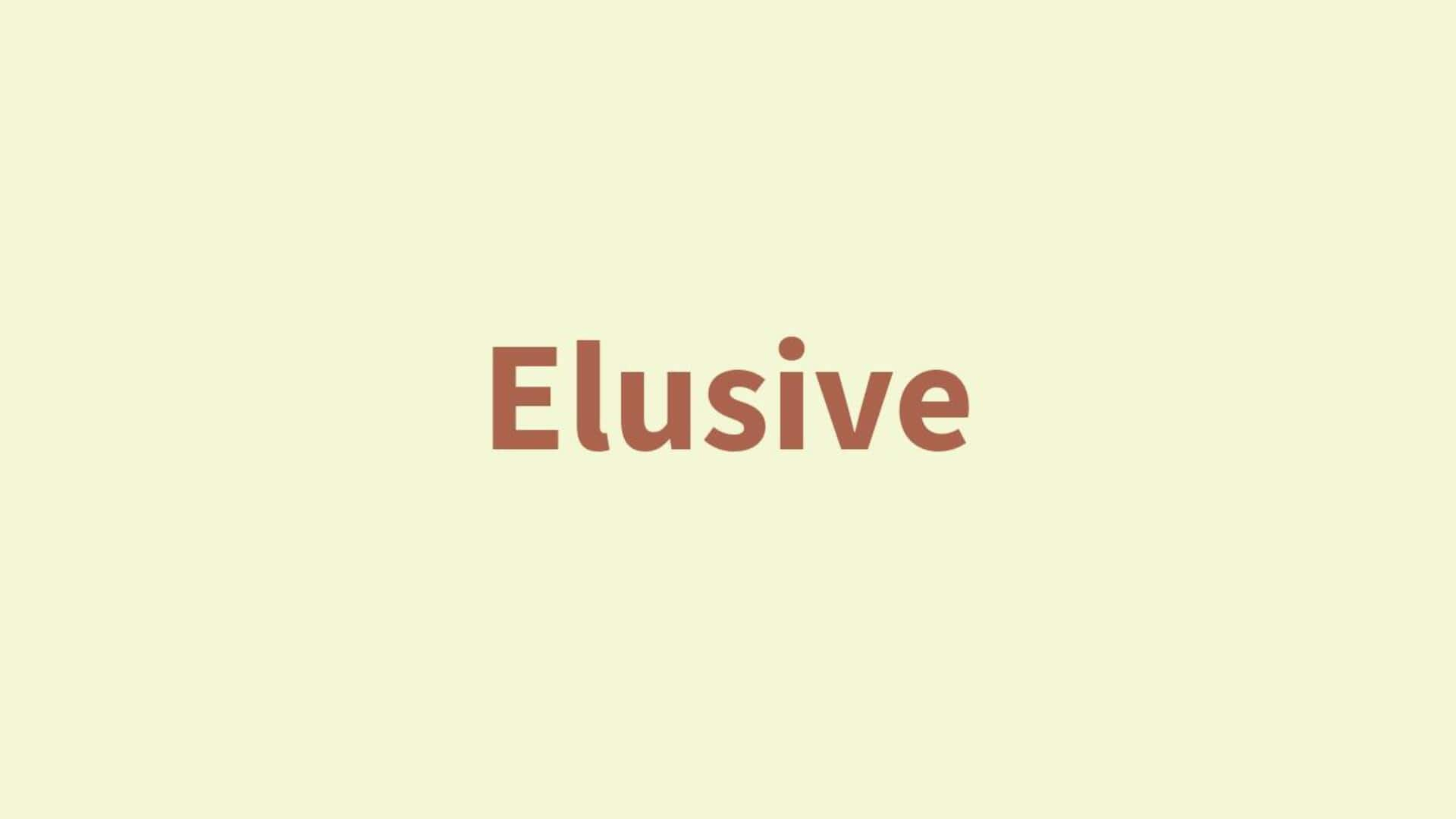
Word of the Day: Elusive
What's the story
"Elusive" is an adjective used to describe something that is hard to find, catch, or understand. It can refer to a person, an idea, or even a feeling that seems to slip away just when you think you've grasped it. Let's learn more about this fascinating word.
Origin
Origin of the word
The word "elusive" comes from the Latin word eludere, which means "to escape from" or "evade." It first appeared in English in the 18th century and has since been used to describe things that are difficult to hold onto, whether physically, mentally, or emotionally.
Synonyms
Synonyms for 'elusive'
Some useful synonyms for "elusive" include slippery, evasive, hard-to-catch, mysterious, puzzling, intangible, fleeting, obscure, tricky, and vague. Each of these words helps describe something that avoids clear definition or easy understanding, whether it's a hidden truth or a passing thought.
Usage
Sentence usage
Let's see how to use this word in different contexts: "The solution to the puzzle was 'elusive,' despite hours of effort." "She caught a glimpse of an 'elusive' deer in the woods." "Happiness seemed 'elusive' during that difficult time."
Writing
Why use the word
"Elusive" is a great word when describing things that are hard to pin down. It adds depth and emotion to your writing, showing effort, mystery, or frustration. Whether you're talking about a memory, a person, or an idea, "elusive" helps convey that it's not easy to grasp or define.